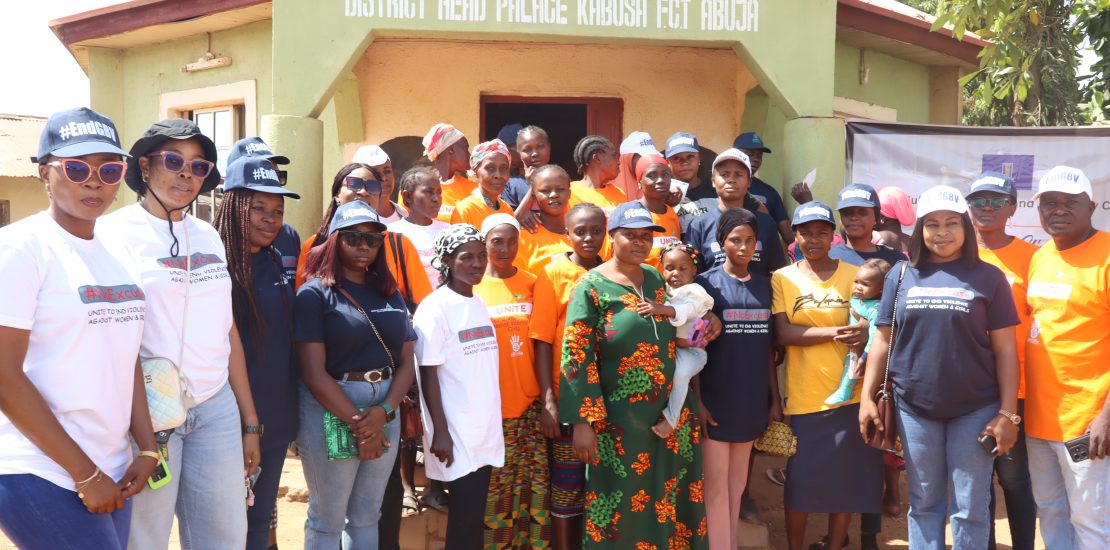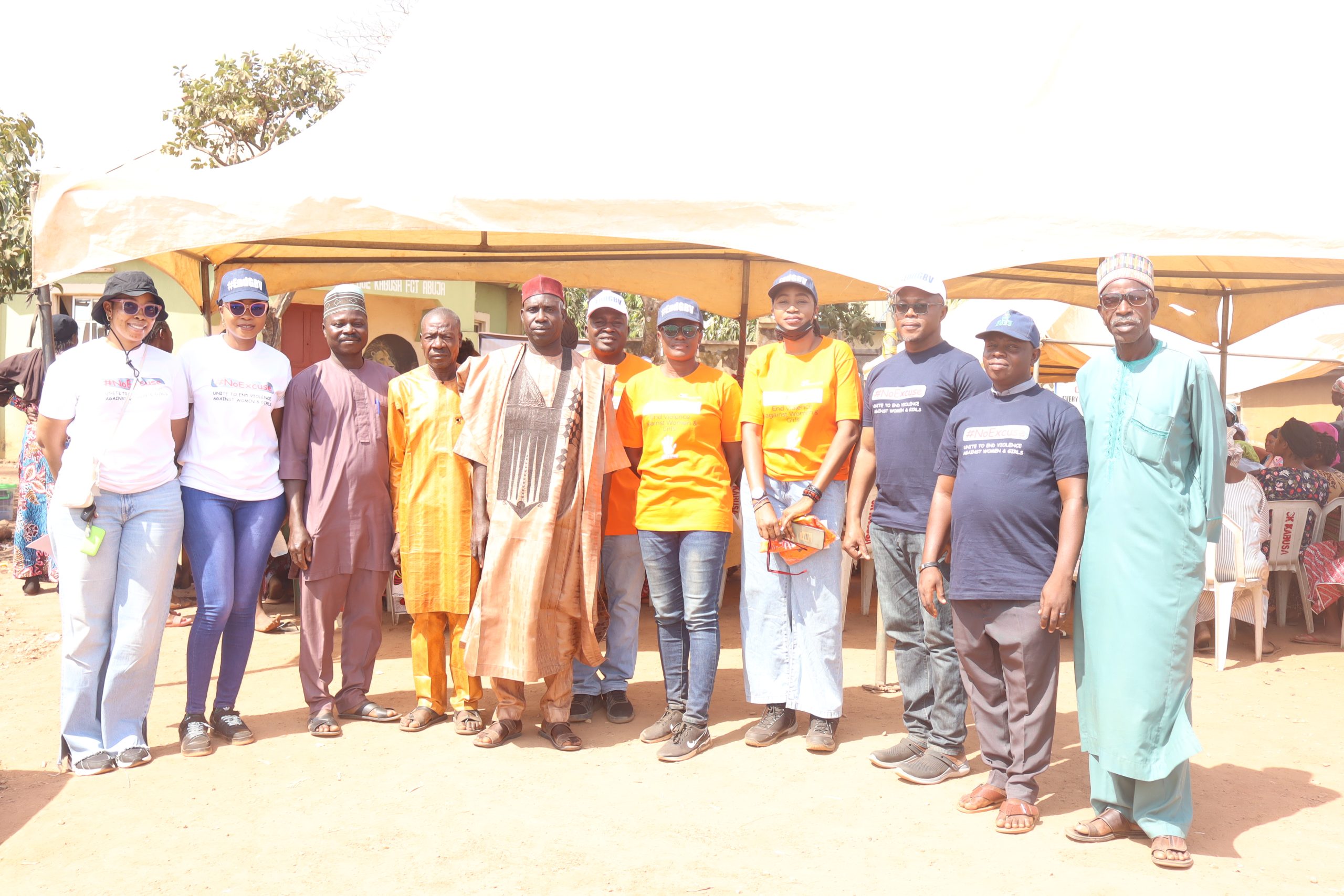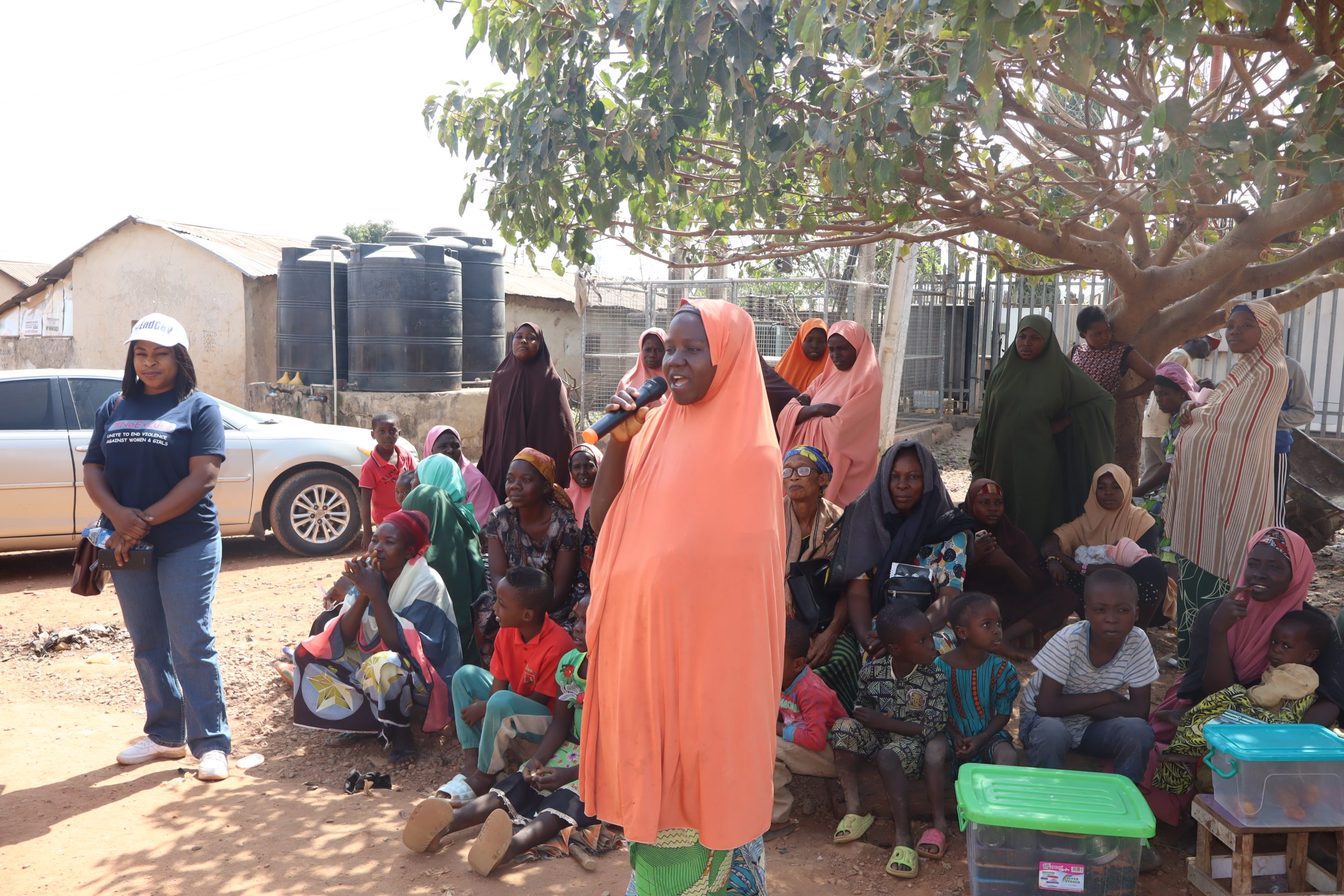Activity Report: Law Hub Tackles GBV in Kabusa Community
- December 12, 2024
- Posted by: Hub Admin
- Categories: Article, Human Rights, Latest News & Events, Rule of Law, Rule of Law and Access to Justice

REPORT OF THE SENSITISATION WORKSHOP / LEGAL CLINIC IN COMMEMORATION OF THE 16 DAYS OF ACTIVISM AGAINST GENDER-BASED VIOLENCE IN KABUSA VILLAGE
Date: 7th December, 2024
Venue: District Head’s Palace, Kabusa Village, Abuja – FCT
Topic: Understanding Gender-Based Violence

Background
The 16 Days of Activism Against Gender-Based Violence (GBV) is a global campaign aimed at raising awareness and promoting action to end gender-based violence. It occurs annually from November 25th (the International Day for the Elimination of Violence Against Women) to December 10th (Human Rights Day). The campaign highlights the urgency of tackling GBV and calls for governments, communities, and individuals to take action against all forms of violence, including physical, sexual, emotional, and psychological abuse.
In line with the above, Law Hub Development and Advocacy Centre carried out a sensitisation workshop focused on “Understanding Gender-Based Violence” in Kabusa Village. The initiative was strategically timed to coincide with the internationally recognised 16 Days of Activism Against Gender-Based Violence campaign.
As part of the intervention, the organisation simultaneously offered pro bono legal services specifically designed to support victims of gender-based through its Law Hub Clinic. The workshop and legal clinic represented a targeted approach to addressing community awareness, legal support, and survivor empowerment.
The event brought together community members, legal professionals, and advocacy experts to provide in-depth education about gender-based violence, its impacts, and available legal remedies. By combining educational outreach with direct legal support, Law Hub demonstrated a holistic strategy for confronting gender-based violence at both systemic and individual levels.
The Law Hub Clinic’s pro bono services aim to remove financial barriers that often prevent survivors from seeking legal recourse, thereby ensuring that victims have accessible pathways to justice and support.
Aims/Objectives
The aims and objectives of the sensitisation workshop were as follows:
- To raise community awareness about the prevalence and impact of gender-based violence
- Empower participants with knowledge of their legal rights
- To encourage collective action within the community to foster a violence-free and equitable environment.
- To promote gender equity and respect for human rights through education and dialogue.
- To provide free legal consultation and guidance to participants.
- To address legal concerns related to gender-based violence and other community issues.
Participant Composition And Engagement
Total Participation:
– 120 community members in the main workshop, beyond the targeted 50 women
– 14 individuals in specialised legal aid clinic sessions

The demographic represented a cross-section of Kabusa Village, encompassing various age groups, socio-economic backgrounds, and community roles, ensuring a comprehensive and inclusive dialogue.
The workshop was a collaborative effort involving:
- Nigeria Women Trust Fund (NWTF)
- Partners West Africa – Nigeria (PWAN)
- CLEEN Foundation
- Nigeria Police Force
- International Federation of Women Lawyers (FIDA)
Key Topics Addressed
- Definition and forms of Gender-Based Violence(Law Hub)
- Human rights in context of GBV(PWAN)
- Security and preventive measures (CLEEN Foundation)
- Legal reporting channels and mechanisms (Law Hub / Police)
Significant Findings
The workshop revealed several critical insights:
- Limited awareness of legal rights among participants
- Cultural norms perpetuating violence
- Generational patterns of silence and tolerance
- Strong interest in legal remedies
- Positive receptiveness to collective community efforts
- Recognition of the need for sustained engagement and education.
Challenges Identified
- High prevalence of unreported gender-based violence
- Limited access to support services
- Cultural barriers to addressing and reporting violence
- Insufficient legal awareness and support mechanisms
- Limited knowledge of reporting mechanisms
- Fear and stigma preventing formal reporting
- General lack of public trust in the police.
Recommendations
- Enhance Legal Education
– Develop continuous learning programmes
– Create accessible, culturally sensitive educational materials
– Implement long-term community training initiatives
- Comprehensive Support System
– Establish dedicated support centres
– Train community volunteers
– Create robust referral networks
– Develop counseling and rehabilitation programmes
- Institutional Collaboration
– Strengthen partnerships with local and national organisations
– Create accountability mechanisms
– Collaborate with organisations to hold law enforcement accountable
– Develop integrated response protocols
- Policy and Advocacy
– Engage local leadership
– Develop community-specific intervention strategies
– Create platforms for continuous dialogue and feedback
– Develop monitoring and follow-up mechanisms for GBV cases
 Conclusion
Conclusion
While the workshop represented a singular day of intervention, its ripple effects promise far-reaching transformation. By creating spaces for dialogue, education, and collective action, Kabusa Village took a significant step towards dismantling systemic violence and rebuilding a more equitable, compassionate community landscape, hence the need for the momentum to be sustained.
The event also revealed the need for a multifaceted, sustained approach involving education, legal support, community engagement, and systemic change, to combat gender-based violence.
